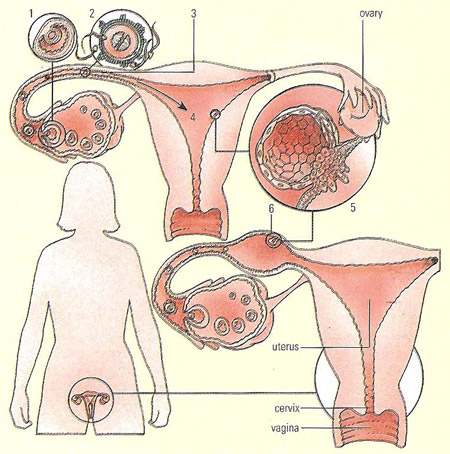pregnancy

An ectopic pregnancy occurs when the egg released from the ovary (1) and fertilized by sperm (2) in the Fallopian tube (3) fails to passed down into the top of the uterus (4), where it would normally implant in the wall of the uterus. If the zygote does implant in the wall in the wall of the Fallopian tube (6), there is not the space or the blood supply to nurture a fetus to full term..
Pregnancy, in humans, is the nine-month period from the fertilization and implantation of an ovum (egg), the development of embryo and fetus through the birth of a child. Interruption of menstruation and change in structure and shape of the mammary glands (breasts) are early signs; morning sickness, which may be mild or incapacitating, is a common symptom. Later an increase in abdominal size is seen and other abdominal organs are pushed up by the enlarging uterus (womb). Ligaments and joints become more flexible in preparation for delivery. Multiple pregnancy, hydatidiform mole, spontaneous abortion, antepartum hemorrhage, toxemia, and premature labor are common disorders of pregnancy. The time following birth is called puerperium.
Ectopic pregnancy
An ectopic (or extrauterine) pregnancy is a pregnancy that occurs outside the uterus – in the Fallopian tube or elsewhere. The embryo cannot develop normally and spontaneous abortion often occurs. If not, urgent surgery is necessary to save the mother from serious, possible fatal hemorrhage.


